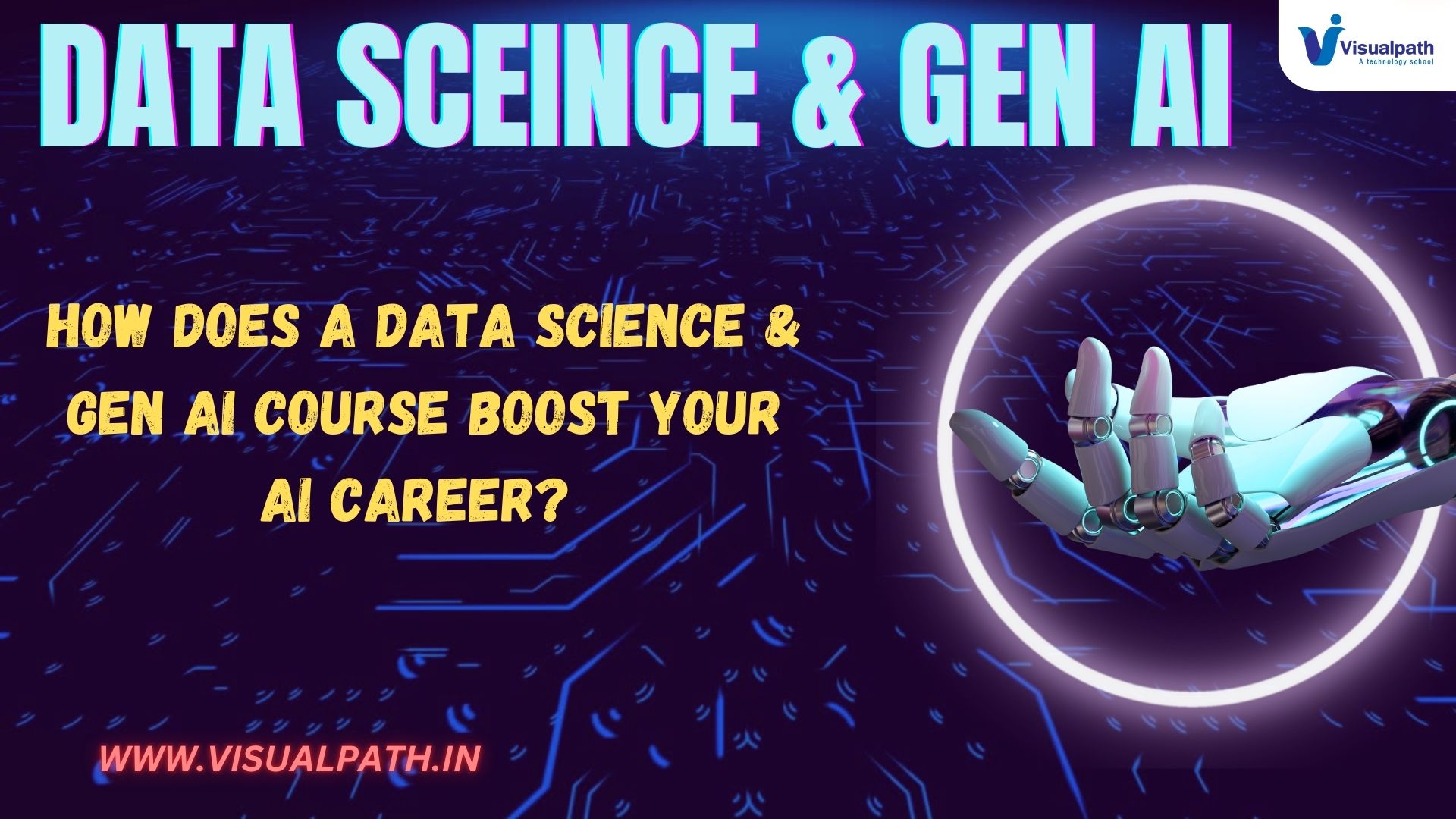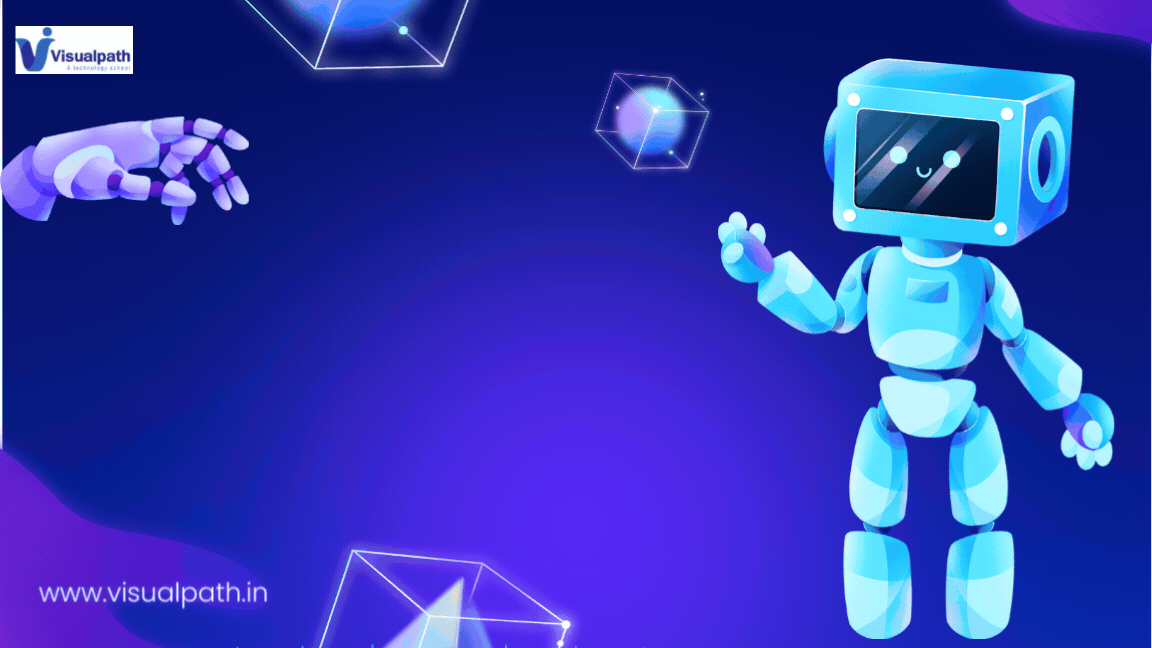Data science & Generative AI has emerged as one of the most transformative advancements in the realm of artificial intelligence (AI). It is revolutionizing industries by enabling machines to create data, generate realistic content, and simulate human-like creativity. In the field of data science, generative AI is opening new doors to innovative solutions, making predictive models more accurate, and transforming the way data is utilized. But what exactly is generative AI, and how does it integrate into data science practices? Let’s explore the fundamentals and its applications. Data Science with Generative Ai Training
Understanding Generative AI
Generative AI refers to models and algorithms that can generate new data similar to the data they were trained on. Unlike traditional AI, which focuses on classification, regression, or pattern recognition, generative AI creates outputs that mimic real-world examples. By learning the underlying patterns and structures of the input data, generative AI can produce new text, images, audio, and even synthetic datasets.
Generative AI models are typically built using neural networks, particularly Generative Adversarial Networks (GANs), Variational Autoencoders (VAEs), and Transformers. These architectures allow AI systems to generate data that not only appears authentic but also aligns closely with the original data distribution. Data Science with Generative Ai Course.
How Generative AI Works
Generative AI operates through complex processes involving two primary components: a generator and a discriminator. This process is particularly evident in GANs, one of the most popular generative AI models. Here’s a simplified breakdown:
- Generator: The generator creates new data instances, attempting to mimic the real data. For instance, in image generation, the generator produces images that resemble those in the training dataset.
- Discriminator: The discriminator evaluates the generated data and compares it against actual data, determining whether the output is real or fake.
- Training Loop: The two components compete in a continuous feedback loop.Over time, this adversarial process leads to highly realistic data generation.
Other models like VAEs work by encoding input data into a compressed format and then decoding it to reconstruct or generate new data. Transformers, which power models like GPT (Generative Pre-trained Transformer), excel at generating human-like text by predicting the next word in a sequence based on previous words.
Applications of Generative AI in Data Science
Generative AI has found significant applications in data science, enhancing workflows, improving models, and providing solutions to long-standing challenges.
1. Data Augmentation Data augmentation is essential in machine learning to increase the diversity of data and improve model robustness. Generative AI can synthesize new training data, particularly for image classification, natural language processing (NLP), and speech recognition. This expanded dataset helps reduce overfitting and enhances model generalization. Data Science with Generative Ai Online Training .
2. Synthetic Data Generation When real-world data is scarce or sensitive, generative AI can create synthetic datasets that mirror the statistical properties of the original data. This is invaluable in healthcare, finance, and cybersecurity, where data privacy is paramount.
3. Anomaly Detection Generative models can learn the normal patterns of a dataset and identify anomalies or outliers by detecting deviations from the generated patterns. This application is crucial in fraud detection, network security, and predictive maintenance.
4. Image and Video Synthesis In computer vision, generative AI is used to create high-resolution images, enhance video quality, and generate realistic avatars. This capability benefits industries like gaming, entertainment, and design.
5. Text Generation and NLP Generative AI powers chat bots, virtual assistants, and content creation tools by generating coherent and contextually accurate text. Models like GPT-4 demonstrate the ability to craft articles, translate languages, and summarize documents effectively.
Benefits of Integrating Generative AI into Data Science
The integration of generative AI into data science offers numerous advantages, including:
- Enhanced Creativity: Generative AI fosters creativity by automating the generation of new ideas, designs, and content, accelerating innovation.
- Time and Cost Efficiency: By generating synthetic data and automating data augmentation, generative AI reduces the time and cost associated with data collection and preparation.
- Improved Model Performance: Generative AI expands datasets and creates more diverse training examples, leading to better-performing models with higher accuracy.
- Addressing Data Scarcity: In domains with limited data, generative AI fills the gap by producing realistic data, enabling the development of machine learning models in data-constrained environments.
Challenges and Considerations
Despite its potential, generative AI comes with challenges. Additionally, there is a risk of generating biased or misleading data if the training set is unbalanced. Ethical concerns regarding deep fakes, content authenticity, and data privacy also need to be addressed.
Conclusion
Generative AI stands at the forefront of technological innovation, driving new possibilities in data science. By enabling machines to create realistic and high-quality data, generative AI enhances model performance, solves data scarcity issues, and opens avenues for creativity. As the field evolves, the integration of generative AI into data science will continue to transform industries, offering new insights and ground breaking applications.
Join Visualpath Provide Data Science with Generative Ai Course Hyderabad. And dive into the world of AI and machine learning. Learn advanced Data Science Course techniques, generative models, and hands-on skills that are in high demand. Unlock the future of Data Science with Generative Ai. For more information contact us +91 9989971070.
Attend Free Demo
Call on: +91 9989971070
WhatsApp: https://www.whatsapp.com/catalog/919989971070/
Visit Blog: https://www.blogger.com/blog/posts/7080454797723945490
Visit us: https://www.visualpath.in/online-data-science-with-generative-ai-course.html




